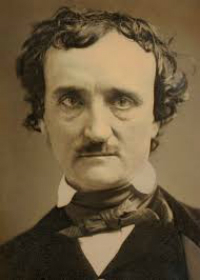Charlemagne or Charles I the Great was an important medieval emperor and conqueror of the Carolingian Dynasty. A great defender of Catholic dogmas, he was crowned Emperor of the Germanic Holy Roman Empire in 800 by the Pope lion III, after becoming King of the Franks (768 to 814) and of the Lombards (from 774), thus constituting the great Carolingian Empire, named after him.
His actions were very important to reunite several parts of Europe, which had been fragmented since the fall of the Western Roman Empire, in 476 d. Ç.. That was how the governor contributed with significant changes in the scope of medieval culture, the development of territorial administration and strategies focused on military expansionism.
In such a way, in addition to collaborating with the spread of the Catholic religion, he was a great supporter of letters and arts as well as a valuer of education, which led him to carry out an educational reform in the Europe.
Thus, schools began to function in courts, monasteries and bishoprics which included the subjects: grammar, rhetoric and dialectics, arithmetic, geometry, astronomy and music. This period of flourishing arts and culture became known as the Carolingian Renaissance.
Biography: Summary
Despite being considered one of the most important figures in Medieval Europe, little is known about his life. Grandson of Carlos Martel, Duke of Austrasia, and eldest son of Pepino III, the Breve, Carolus Magnus was born in 742 and died in 814. He followed in the footsteps of his heirs and was one of the most important representative figures of the expansionist policies carried out in Europe.
After the fall of the Western Roman Empire in the mid-fifth century, Europe was fragmented into several kingdoms, which competed with each other for power when seeking the conquest and expansion of territories in the continent.
Although there were many disputes between the kingdoms, the essential characteristic was the expansion of the Catholic religion, which by its time, it was used strategically by Charlemagne, to unite Europe again, as many kingdoms had these beliefs.
The work he had been doing was already being carried out by his father Pepino III, who ruled the Kingdom of the Franks from 751 to 768, and sealed the power of the Kingdom with the Catholic Church. Upon his death, the inheritance was divided between Charlemagne and his brother Carloman I (751-771).
As a strategist and dominated by the will to conquer, with the death of his brother, who ruled the eastern part of the Kingdom of the Franks during three years (768-771), Charlemagne decided to unify the lands, thus disrespecting the order of succession to the throne, which should be his nephew. This fact earned him the title of the most important King of the Franks, and for many, the only one.
Thus, Magnus ruled the Kingdom of the Franks from 768, and the religious power that emanated from Rome had been transferred to northern France, which left many Romans unhappy, indicated by the various disputes that had. His great rival was the Italian Desiderius, Duke of Tuscany and King of the Lombards, who ruled from 756 until the year 774, when he was defeated by Charlemagne.
He was a skilled warrior, politician and strategist, and through his military campaigns, he conquered diverse territories creating a vast Empire, which united part of Western and Central Europe, in the territories of the countries: France, Spain and Italy. He participated in several battles, of which the following stand out: War in Aquitaine, War of Lombardy, War of Saxony and War of Bavaria.
That's how he bravely fought against paganism in Europe converting them into Christians and extending more and more domain of it, which generated several battles of different peoples: Moors, Britons, Slavs, Huns, Frisians, among others. Upon his death, the position was occupied by his son Louis, King of Aquitaine.
Also read:Holy Roman Empire.



